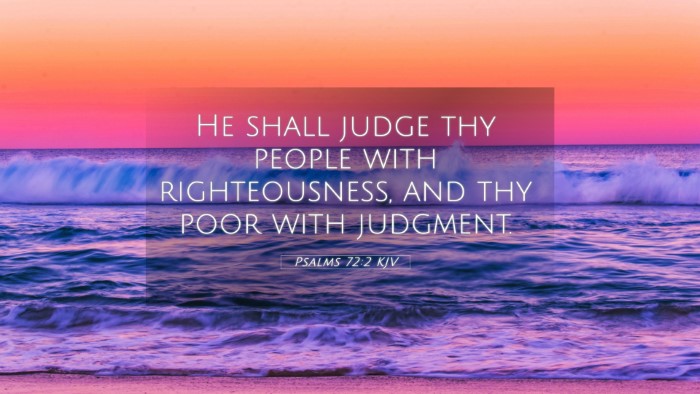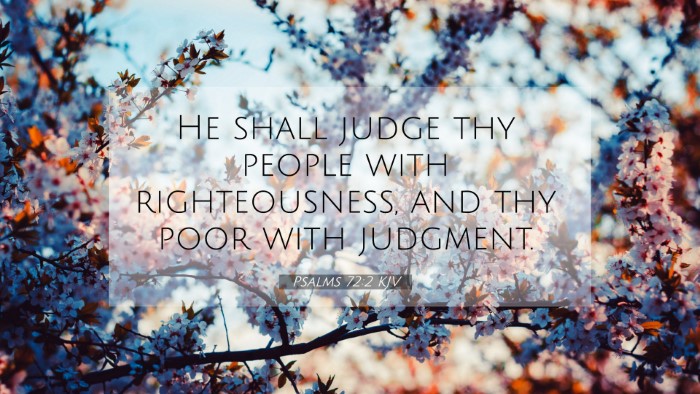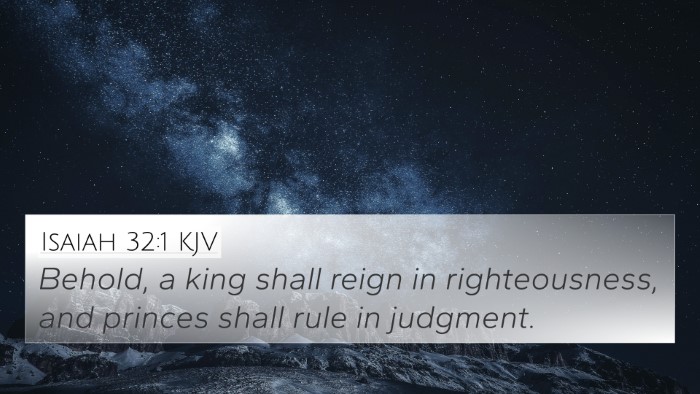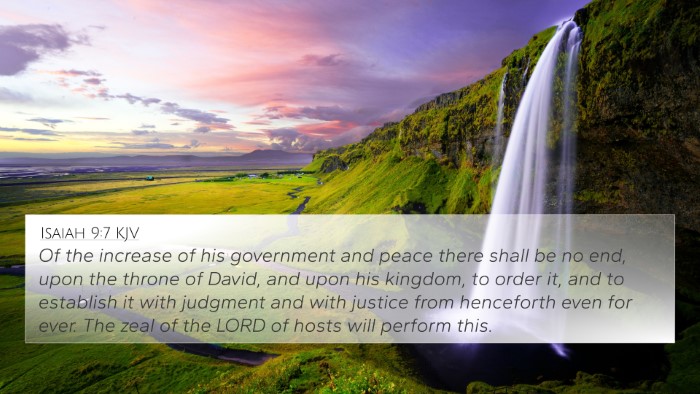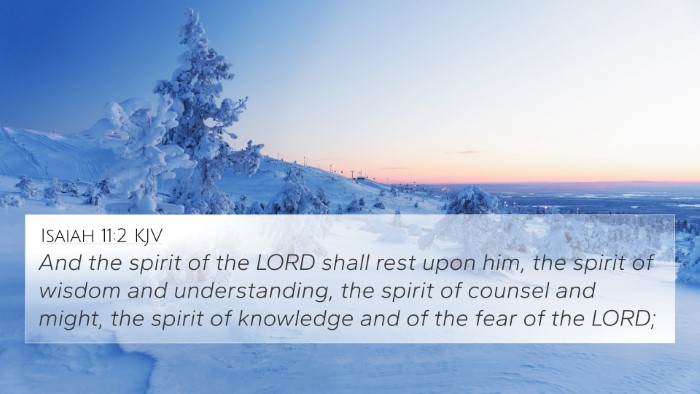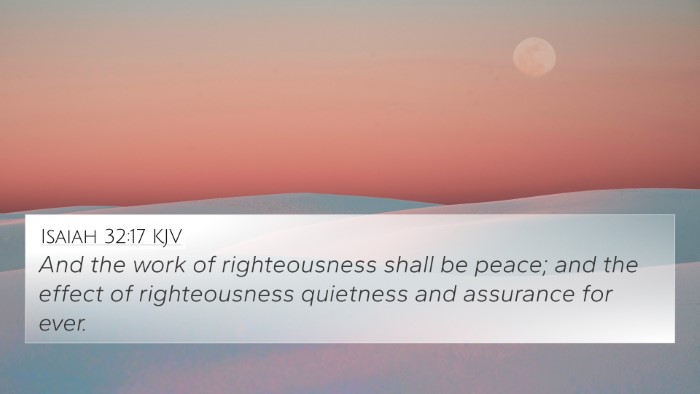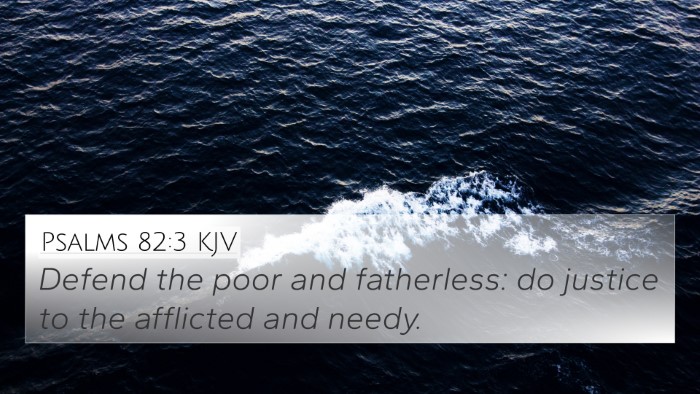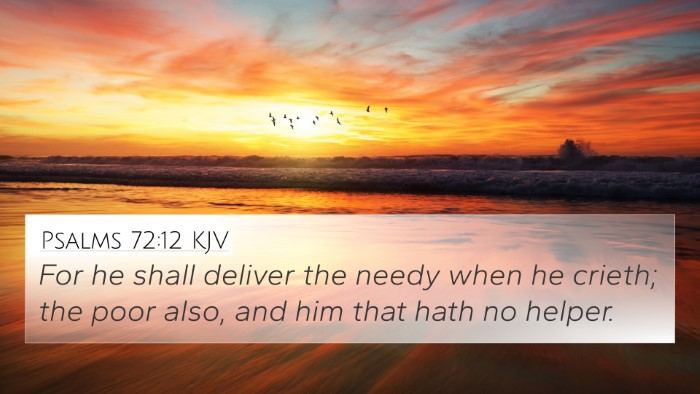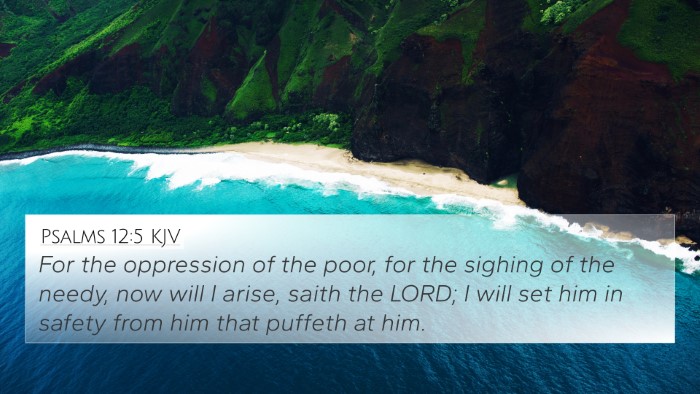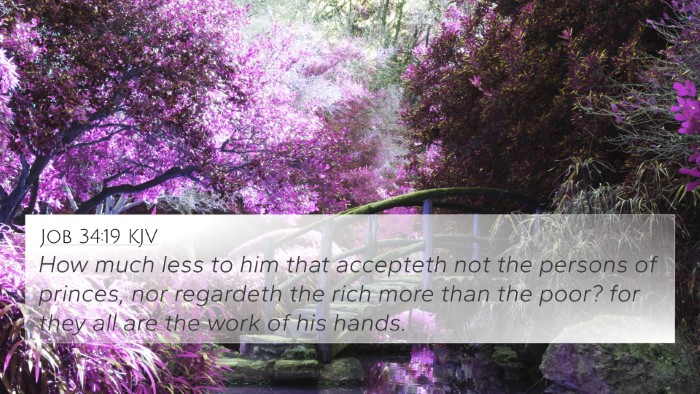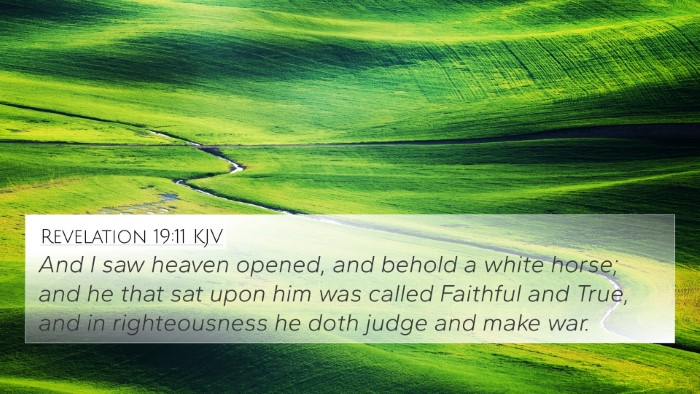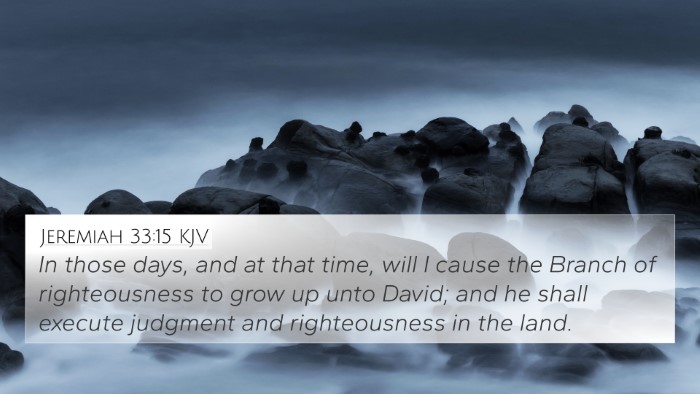Understanding Psalms 72:2
Psalms 72:2 states: "He shall judge thy people with righteousness, and thy poor with judgment."
This verse highlights the ideal ruler's responsibility to govern with justice and care for the marginalized. The ruler mentioned is often interpreted as a reflection of God's character and the anointed king. Let's explore its meaning by drawing insights from several public domain commentaries.
Meaning and Interpretation
The verse encompasses a profound understanding of justice that can be seen in three significant themes:
- Divine Justice: The idea that God's judgment is based on righteousness.
- Care for the Poor: A reminder of the need for social responsibility among rulers.
- Ideal Leadership: The qualities that define a good leader in light of divine authority.
Insights from Commentaries
Matthew Henry's Commentary
Matthew Henry emphasizes that "judging the people with righteousness" reflects the ideal qualities expected of a king. The phrase implies that leaders should be conformed to God’s will and apply fairness in their decisions. Justice in the Biblical sense includes moral rectitude and a sense of equity.
Albert Barnes' Interpretation
Albert Barnes notes the significance of the "poor" and indicates that God’s concern for the oppressed reflects His character. The use of the term "judgment" here serves to highlight the significance of equitable treatment for all, particularly those in need. Barnes advocates that the king ought to model his judgment after God's love and mercy.
Adam Clarke's Commentary
Adam Clarke provides an analysis that includes the theological implications of the verse, asserting that it signifies both the divine appointment of rulers and their accountability to God. Clarke also suggests how the expectations set forth here establish a standard for all leaders, urging them to seek justice and compassion.
Biblical Cross-References
To enhance understanding, here are several cross-references related to Psalms 72:2:
- Isaiah 11:4 - “But with righteousness shall he judge the poor...” reflects a similar theme of justice for the underprivileged.
- Proverbs 29:14 - “The king that faithfully judges the poor, his throne shall be established forever," speaking to the enduring support of just leadership.
- Micah 6:8 - “He hath shewed thee, O man, what is good; and what doth the Lord require of thee, but to do justly, and to love mercy...” outlining God's expectations for justice.
- Matthew 25:40 - “Inasmuch as ye have done it unto one of the least of these my brethren, ye have done it unto me,” highlighting the importance of caring for the needy.
- James 2:5 - “Hearken, my beloved brethren, Hath not God chosen the poor of this world rich in faith...” emphasizes God's favor towards the poor.
- Psalm 82:3 - “Defend the poor and fatherless: do justice to the afflicted and needy,” which parallels the call for justice.
- Luke 4:18 - “The Spirit of the Lord is upon me, because he hath anointed me to preach the gospel to the poor...” connecting this ideal leadership with the mission of Christ.
- Romans 2:6 - “Who will render to every man according to his deeds,” relating to divine justice in the context of judgment.
- Psalm 37:28 - "For the Lord loveth judgment, and forsaketh not his saints..." reinforcing God's commitment to justice.
- Jeremiah 22:16 - “He judged the cause of the poor and needy, then it was well with him..." presenting a model of good leadership.
Thematic Connections
Psalms 72:2 exemplifies the intertwining of social justice and divine expectation, linking various scriptures to illustrate a comprehensive theological perspective. The thematic connections can be seen through:
- Justice: The ongoing theme that links many biblical texts concerning God’s will for equitable treatment.
- Poverty: The continuing Biblical narrative of God’s concern for the marginalized and oppressed.
- Leadership: The qualities of leaders that echo through various accounts in both the Old and New Testaments.
Using Cross-References for Deeper Understanding
Applying cross-referencing tools can significantly enhance one's understanding of scripture. Here are some methods to consider:
- Utilize a Bible concordance to find related verses quickly.
- Employ a Bible cross-reference guide to explore thematic connections.
- Engage in a cross-reference Bible study to examine the relationships between verses in-depth.
- Incorporate a Bible reference resource for assistance in your studies.
Conclusion
Psalms 72:2 serves as a profound reminder of the call for righteousness in judgment and the emphasis on the poor in society. By understanding its context and engaging with related verses, one can appreciate the richness of Biblical truths surrounding justice, leadership, and care for others.

